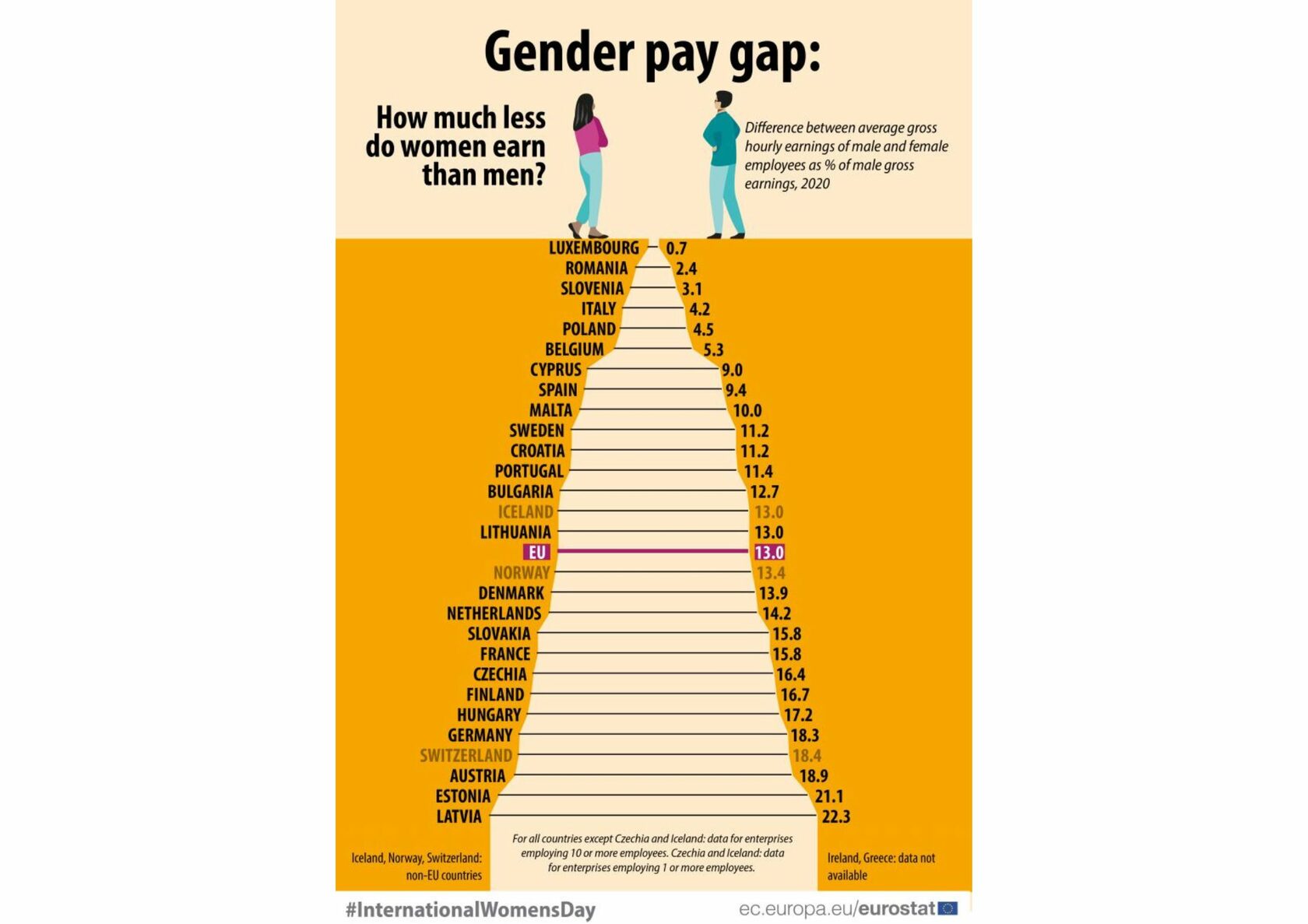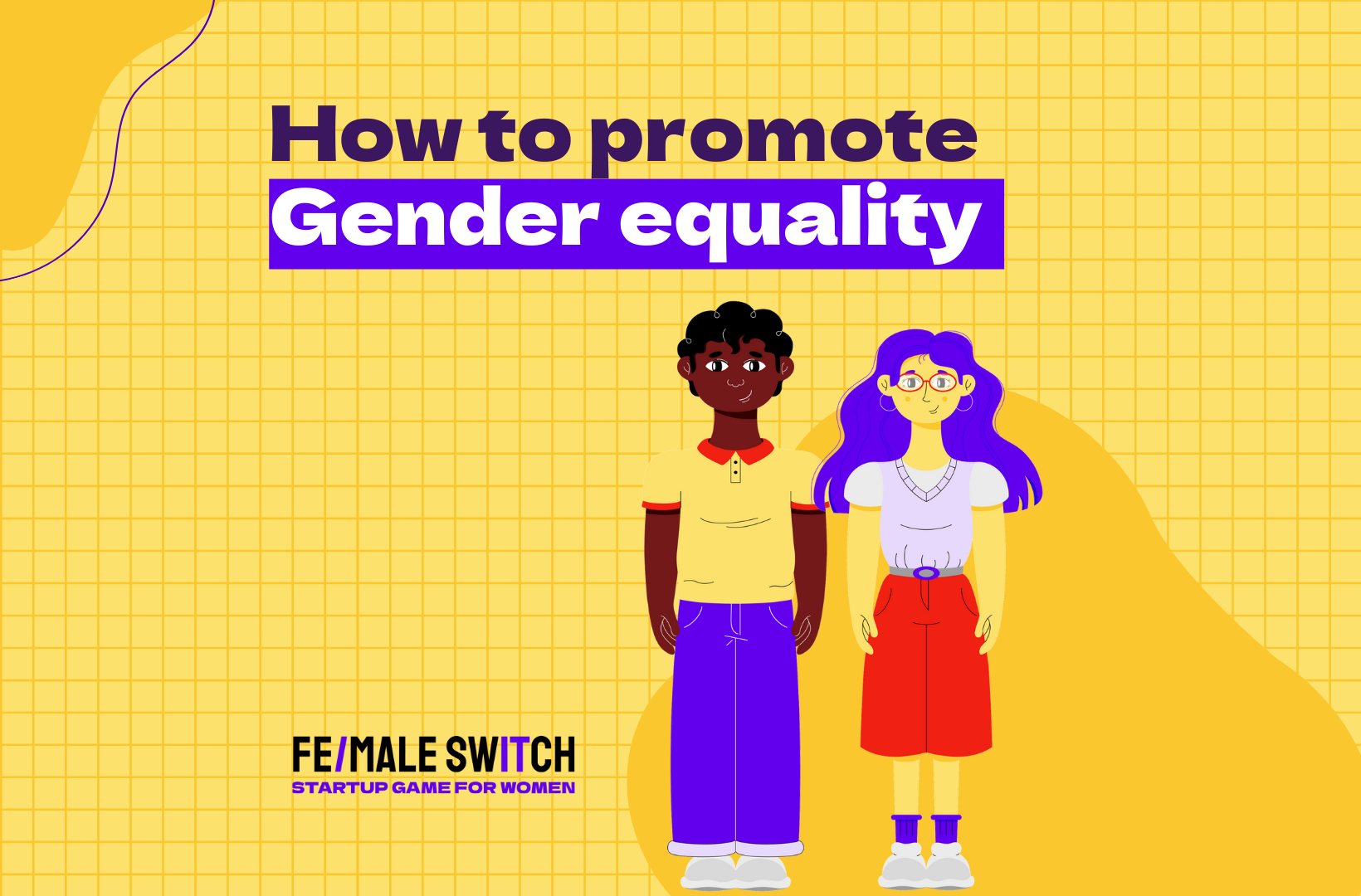What are the Ways to Promote Gender Equality?
Eurostat found that in 2020, women's gross hourly earnings were on average 13.0 % below those of men in the EU. And the highest gender pay gap in the EU was recorded in Latvia (22.3 %) and the lowest in Luxembourg (0.7 %).

According to the World Economic Forum's Gender Gap report, it will take another 100 years to achieve gender equality based on the current level of technology. That's a lot of time, isn't it? But actually, there are many steps a company can take now to promote gender equality. And here are some steps you may take to begin promoting it:
Looking to apply for EU Funding? Check out the article on writing a successful application here.
1) Audit payments
Consider conducting a pay audit to see if your male and female employees receive equal pay. This will help you identify if all the employees are given equal opportunities. Also, do pay attention to such categories as education levels, performance, experience, and employment positions.
2) Offer flexible hours
Some jobs require long hours to get the work done, but it doesn't mean that all employees must stay at work those exact hours. In fact, scheduling employees' work will encourage people in the company to work more productively and help increase motivation. Flexible hours allow employees to balance their lives with professional responsibilities.
3) Make sure women are represented fairly
Some organizations use quotas when hiring to ensure that certain positions, especially in management, are given to women. But this approach isn't always effective; it is still better to hire a woman based on her achievements, as this will help promote gender equality and empower women.

4) Get rid of biases
The Fe/male Switch project aims at removing any biases against either gender. Check our Startup School out, where we cover the idea of the Bias Score; this should give you more powerful insights on making your company a more inclusive workplace.
Long story short: when hiring a person, try to look past their gender and focus on their skills. Ask yourself whether you want this person to occupy a specific position in your company. Would you trust them to represent your business? Would you expect them to handle difficult situations right? Would you trust them with sensitive information? Focus on those questions instead of their gender and looks.
We have a completely FREE STARTUP SCHOOL and there's a new AI FOR STARTUPS MODULE run by AI. Sign up for the free startup school and get started immediately.
5) Have women mentors
Mentoring in the workplace, especially in building a startup, may prove invaluable in training a new employee. But one of the best activities to promote gender equality is having women mentor men. This will benefit both parties as they will learn about different leadership styles and help generate empathy and visibility among personnel.
Women are a minority in the business world, so it's no surprise they may be hesitant to enter this world with little or no support. Changing this will encourage more women to take on leadership roles and hence will give humanity more vision, providing diverse approaches to problem-solving.
By the way, you can find a female startup mentor in our Fe/male Switch startup game for women.
Join Fe/male Switch, the first educational startup game for women!
Women entrepreneurship is growing around the world, but men still outnumber women 3-1 when it comes to business ownership, say experts.
If you want to become an entrepreneur, if you want to know how to empower yourself and build your own business, apply for Fe/male Switch startup game for women and learn how to create your startup the way you see it!
Join our supportive community of future female founders in the game and let's fight this gender gap and bring more women to startups!
Read about 10 steps to build your own startup without any money or technical skills here.



